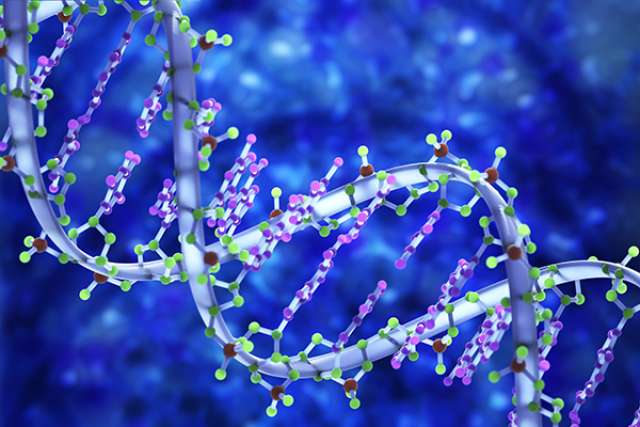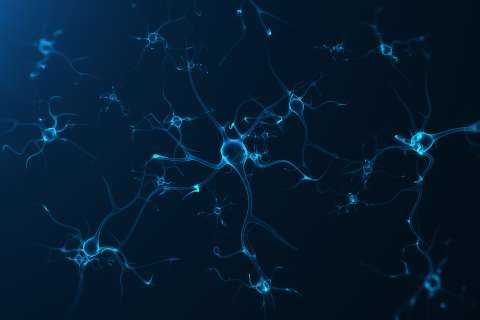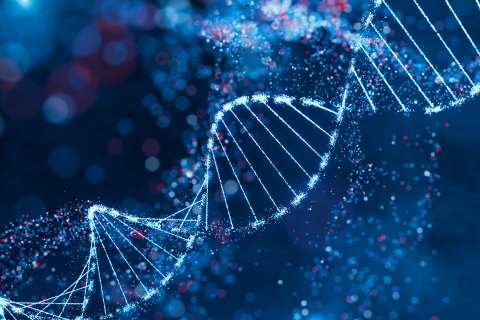UCLA has received a $29 million gift to establish a center where scientists and physicians will work side by side to examine the role of genetics in disease and develop therapies that improve patients' lives.
The gift creates the Dr. Allen and Charlotte Ginsburg Center for Precision Genomic Medicine. The new center will build on UCLA's efforts in precision health to leverage large data sets and innovative genomic technologies such as CRISPR engineering to improve diagnosis and treatment of a wide variety of genetic disorders. They include both rare diseases and more common illnesses such as cardiovascular disease, cancer and immune disorders, diseases of the eye and brain disorders such as autism, Parkinson’s and Alzheimer's.
"I am so grateful to Dr. Allen and Charlotte Ginsburg for their remarkable vision and generosity and for placing their confidence in UCLA's capacity for innovation," said UCLA Chancellor Gene Block. "Combining our health system's strengths in biomedical research and clinical care, the Ginsburg Center is sure to benefit patients and their families through life-saving, individualized treatments."
Genes carry the biological instructions for life but also can be a source of human disease — alone and in combination with environmental and other factors. The Ginsburg Center will harness massive computing power and human-genome sequencing to better understand genetic factors in disease, identify genetic risks in populations and develop gene therapies and other innovative and individualized treatment strategies.
"This gift provides transformational support in an area where UCLA excels — multidisciplinary teams of scientists and physicians utilizing the latest technology and collaborating to improve care," said Dr. John Mazziotta, vice chancellor of UCLA Health Sciences and CEO of UCLA Health.
"Launching the Ginsburg Center within the Institute for Precision Health is a milestone in our work to bridge cutting-edge genetic research and direct patient care with individually targeted treatments," said Dr. Daniel Geschwind, the Gordon and Virginia MacDonald distinguished professor of human genetics, senior associate dean and associate vice chancellor of precision health. "We have been building toward this moment at UCLA, helping to lead the way in genetic therapies and advancing genetic research and treatments. The extraordinary generosity of the Ginsburgs propels us to a new level of discovery that will benefit patients from all walks of life."
The Ginsburgs, a married couple of 41 years residing on Los Angeles County's Palos Verdes Peninsula, said their gift was inspired by a desire to continue the quest for knowledge that addresses the human condition.
"Charlotte and I believe strongly that science must inform policy and clinical care, and that future generations must be provided tools and mentors to push discovery forward," said Allen Ginsburg, a retired ophthalmologist who completed his residency at UCLA in 1963. He maintained a medical practice in Redondo Beach, California, for many years.
"We are thrilled to support UCLA's impressive trajectory in precision health research aimed at individualized patient care equitably available to all patients," he said.
Allen Ginsburg is a real estate entrepreneur and philanthropist. Charlotte Ginsburg is a performing arts patron and enthusiast.
The gift includes support for the most modern gene-editing technology platforms to accelerate the translation of research discoveries to therapeutics. Also planned is a new one-stop, multidisciplinary and integrated patient clinic — from diagnosis to treatment and follow-up — on the UCLA campus, near a wide range of UCLA Health's other ambulatory clinics and Ronald Reagan UCLA Medical Center. In addition, the gift creates the Ginsburg Research Fellowship and an annual symposium, which includes an emphasis on population genetics research and ethics.
The new center will draw from the expertise of physicians and researchers from the UCLA Institute for Precision Health and the human genetics department, as well as faculty specializing in medical genetics, rare diseases, computational medicine and other disciplines.
"The Ginsburg Center reimagines the interrelationship between biomedical research and patient care, and we are proud to partner with Allen and Charlotte Ginsburg to realize our ambitious, shared goals," said Dr. Kelsey Martin, dean of the David Geffen School of Medicine at UCLA.
"Data-driven, individualized treatment is the future of medicine, and the Ginsburg Center speaks to our enduring commitment to provide patients with the best possible care," said Johnese Spisso, president of UCLA Health, CEO of the UCLA Hospital System and associate vice chancellor of UCLA Health Sciences.
The UCLA Institute of Precision Health was formed in 2016, and the Ginsburg Center joins other priority programs organized under the institute's umbrella. Among them are:
- The UCLA ATLAS Community Health Initiative, a large-scale collection of biological samples used to create California's largest and most diverse genomic resource for translational medicine;
- The UCLA Center for SMART Health, which explores new technologies that provide better information to doctors, resulting in greater treatment for patients;
- The California Center for Rare Diseases at UCLA;
- A master of science in genetic counseling training program.
These activities align strongly with the computational medicine department to bring advances in artificial intelligence and machine learning to clinical care.
In addition, UCLA Health announced in November 2020 that it had entered into a collaborative research agreement with the Regeneron Genetics Center to provide whole exome sequencing for 150,000 patients, an important step in bringing genomic medicine to people across California. Regeneron will utilize biological samples donated by patients via the UCLA ATLAS Community Health Initiative.
"All of these programs work in concert with one common objective — advancing therapeutics and scientific discovery through rigorous academic research that utilizes innovative technology and involves extensive collaboration among a wide range of scientists and physicians," said Geschwind, who heads the UCLA Institute of Precision Health and is also a professor of neurology as well as psychiatry and biobehavioral sciences. "The Ginsburg Center is a powerful new element that will significantly accelerate our ongoing efforts by providing key bridging resources."



